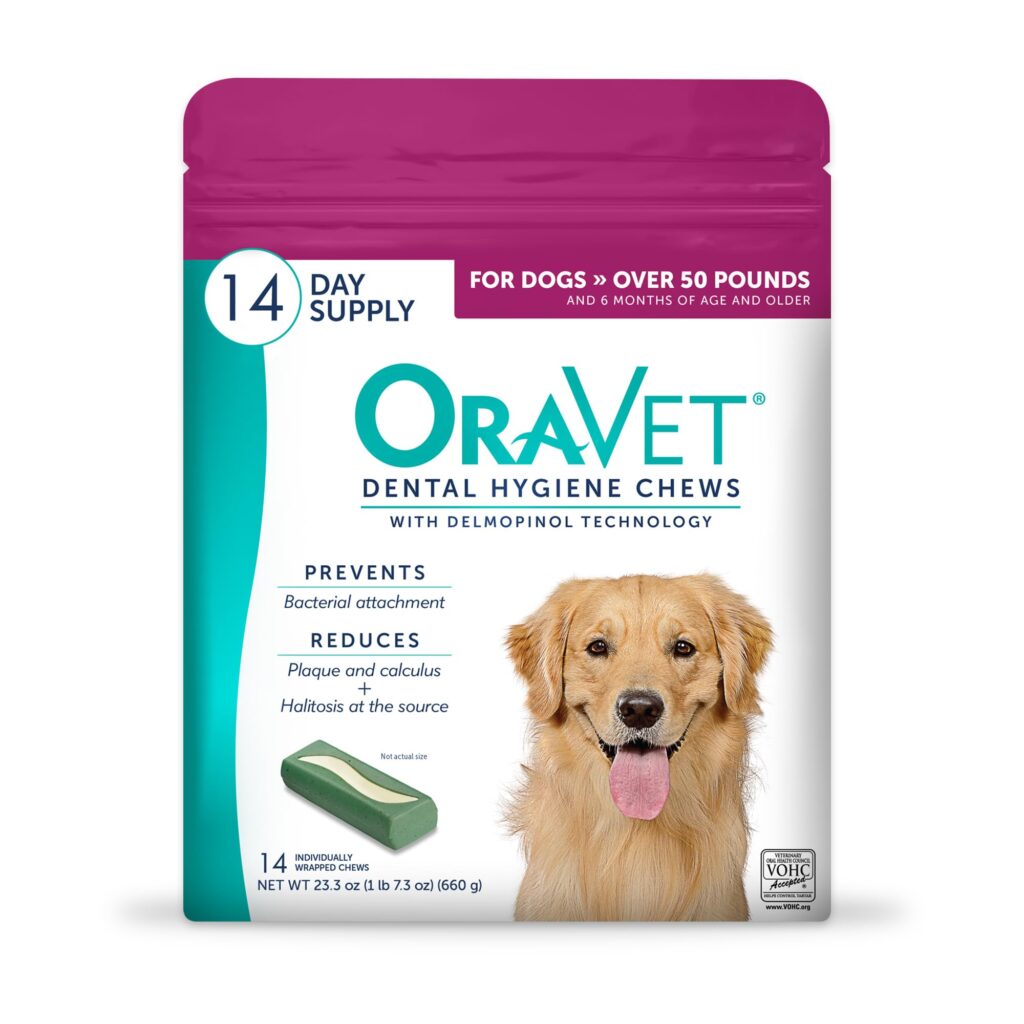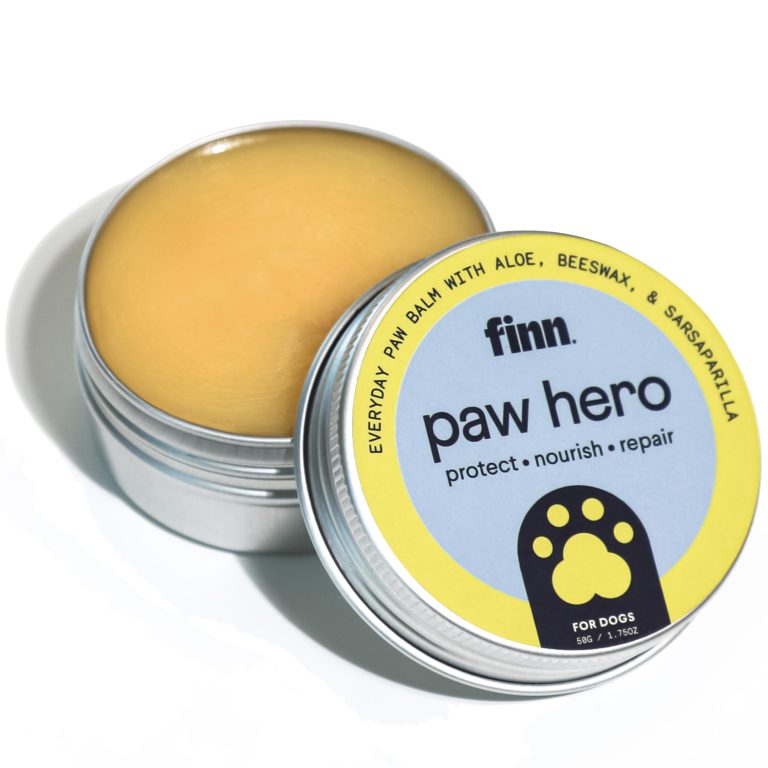Natural Solutions for Canine Skin Allergies

The world of canine health and wellness encompasses a vast array of challenges, not least among them being the pervasive issue of skin allergies. These allergies manifest in a variety of forms, affecting not only the physical well-being of dogs but also their emotional states and overall quality of life. Just as humans experience discomfort and irritation due to allergies, dogs are often subjected to relentless scratching, biting, and licking in an attempt to alleviate their discomfort.
In understanding canine skin allergies, it’s essential to recognize that the canine integumentary system—the skin, hair, and nails—serves as a vital barrier against environmental irritants and pathogens. Allergies in dogs typically arise from an overstimulated immune response to substances that, in healthy animals, would elicit no reaction. The most common culprits include environmental allergens such as pollen, mold, and dust mites, as well as dietary factors, flea saliva, and certain chemicals found in household products.
When faced with these allergens, a dog’s immune system may overreact, leading to inflammation and irritation of the skin. Common symptoms can include redness, swelling, hot spots, and hair loss, while secondary infections proliferate in response to persistent itching and trauma. A dog grappling with skin allergies may also exhibit signs of distress, such as changes in appetite and mood.
As Dr. Marty Becker aptly states, “A dog’s body may be healed by a vet, but it’s the love, attention, and environment of its owner that truly nurtures the soul.”
To effectively address and manage skin allergies in dogs, one must ponder a multifaceted approach that marries veterinary intervention with nurturing lifestyle adjustments. This means regular veterinary check-ups and dialogues about potential allergy testing, which might pinpoint specific triggers. It is incumbent upon pet owners to understand that this process can often involve trial and error, as custom-tailored solutions are discovered through careful observation and testing.
In conjunction with veterinary advice, a proactive approach to exercise is critical, as it not only helps to maintain a healthy weight but also strengthens the immune system. Regular exercise fosters a strong body, allowing a dog to better cope with various health challenges, including allergies. Outdoor activities should be balanced with the dog’s sensitivity to environmental allergens, and an awareness of the pollen counts during peak seasons may guide walking schedules.
Another equally important aspect of canine health is the role of nutrition. Feeding a well-rounded diet rich in high-quality proteins, omega fatty acids, vitamins, and minerals can significantly bolster skin health and reduce allergy symptoms. Foods containing anti-inflammatory properties can aid in decreasing the immune response that leads to allergic reactions. In certain cases, hypoallergenic dog foods or guided elimination diets may also provide clarity on dietary triggers.
- A diet rich in omega-3 and omega-6 fatty acids can promote healthier skin and a shinier coat.
- Incorporating fresh fruits and vegetables can supply essential antioxidants that combat inflammation.
Furthermore, preventive healthcare—including regular grooming, flea and tick control, and maintaining a clean living environment—cannot be overstated in their significance. Grooming helps remove allergens from the coat, while maintaining a clean space mitigates the accumulation of dust and other irritants. Ensuring a dog is free from external parasites also lessens the risk of skin reactions.
As a vigilant pet owner, recognizing the interplay between physical activity, nutrition, and grooming routines is important in supporting your dog in overcoming the challenges posed by skin allergies. These collaborative strategies not only promote immediate relief but enhance overall well-being, pushing against the tides of discomfort that can plague our canine companions.
Common symptoms and triggers
When considering the diverse range of symptoms and their associated triggers in dogs affected by skin allergies, it is paramount to approach this issue with a keen understanding of how these manifestations arise. The most prominent signs often include incessant itching, scratching, chewing at the paws, and localized inflammation, which can lead to pain and distress for our furry friends. Observational habits, such as noting the frequency and timing of these actions, can provide vital clues as to the underlying cause, making it easier to adopt appropriate interventions.
Among the various potential triggers, environmental allergens commonly play a significant role. Pollens from grasses, trees, and weeds enter a dog’s life during seasonal changes, with certain breeds exhibiting heightened sensitivity to these fluctuations. Additionally, mold spores and dust mites can accumulate indoors, exacerbating symptoms during periods when windows are closed and ventilation is limited. Recognizing these triggers helps craft a more strategic approach to mitigation, such as regular cleaning practices, reducing exposure during high-pollen days, and using air purifiers within the home.
The role of fleas as a source of discomfort cannot be overlooked either. Even a single flea bite can trigger a severe allergic reaction, known as flea allergy dermatitis, leading to excessive itching and skin lesions. Regular preventive treatments, coupled with thorough inspections of a dog’s coat during grooming, can serve as a frontline defense against these parasitic invaders that wreak havoc on skin health. Implementing flea control measures is much easier and less distressing than dealing with the aftermath once an infestation takes hold.
In many cases, dietary sensitivities may also contribute to the complex landscape of skin allergies. Certain proteins or ingredients, such as beef, chicken, or dairy, can provoke an adverse reaction that manifests through skin irritation. Pets suffering from such allergies may exhibit chronic ear infections or gastrointestinal distress in conjunction with skin-related symptoms. Here, an elimination diet under veterinary guidance plays an important role; carefully observing dietary changes can identify foods that might be inciting allergic responses.
Moreover, the importance of stress in triggering or aggravating allergic reactions cannot be understated. Just like humans, dogs can experience heightened stress levels that impact their health. Anxiety-inducing experiences—like changes in routine, thunderstorms, or the introduction of new household members—can exacerbate allergy symptoms, creating a feedback loop of discomfort. Employing techniques such as obedience training, enriching activities to channel excess energy, or establishing a safe and relaxing environment can help mitigate stress and its concomitant effects on a dog’s skin health.
In the wise words of Dr. Becker, “The greatest gift you can give your dog is a healthy lifestyle. Do this, and they will repay you with boundless love.”
As a proactive pet owner, remaining vigilant in observing symptoms and identifying potential triggers allows for timely intervention and tailored care. Engaging with veterinary professionals to discuss findings, adjust living conditions, and explore alternative therapies is a collaborative approach that holistically addresses the unique health profile of an individual dog. By embracing this comprehensive strategy, we position ourselves to not only soothe the physical symptoms of skin allergies but to also foster an environment of emotional security and wellness for our canine companions.
It very important to remember that while recognizing triggers and managing symptoms is fundamental, the overarching goal should be a harmonious balance between a dog’s physical needs—manifested through exercise, proper nutrition, and preventive care—and an enriched emotional landscape that encompasses mental stimulation and anxiety reduction.
Natural remedies and treatments
In the quest to alleviate the afflictions associated with skin allergies, a wealth of natural remedies and treatments offers promising avenues for pet owners seeking gentle yet effective solutions. Embracing holistic methods not only addresses the immediate symptoms but also contributes to the overall health and well-being of our beloved dogs.
One particularly effective approach is the application of topical treatments derived from nature. Coconut oil, celebrated for its antimicrobial and anti-inflammatory properties, can be applied directly to irritated skin. This natural moisturizer not only aids in soothing inflamed areas but also forms a protective barrier against further irritants. Adding aloe vera gel into this routine presents another advantageous option; renowned for its calming effects, aloe vera can provide substantial relief from discomfort.
Essential oils also play an invaluable role in the natural treatment of skin allergies. Oils such as lavender and chamomile possess properties that can help reduce itching and promote healing when diluted appropriately with a carrier oil. However, it is vital for pet owners to exercise caution regarding essential oils, as some can be toxic to dogs. Always consult with a holistic veterinarian to ensure safe and effective application.
“Treating the whole animal with respect to their health is the path to achieving balance and harmony,” emphasizes Dr. Becker, reflecting the ethos of a comprehensive health approach.
Furthermore, incorporating certain herbs and supplements into your dog’s diet can offer profound benefits. Omega fatty acids, often sourced from fish oil or flaxseed oil, are particularly noteworthy for their ability to reduce inflammation and improve skin health from within. Adding these to your dog’s diet can enhance the texture and vitality of the coat while minimizing allergic reactions. Another beneficial addition can be quercetin, a natural antihistamine found in various fruits and vegetables. Quercetin works by stabilizing mast cells and preventing them from releasing histamines, thereby ameliorating allergic responses. Consultation with a veterinarian for appropriate dosages is recommended before introducing new supplements.
Measuring the effectiveness of natural remedies requires patience and dedication, as the desired results may take time to materialize. Engaging in a systematic approach, wherein one remedy is introduced at a time and monitored for changes, allows for a clearer understanding of what specifically benefits the individual dog. An attentive owner can record responses over several weeks, providing invaluable insight into their pet’s sensitivities and improvements.
In addition to topical treatments and dietary enhancements, a focus on stress management is paramount. Dogs, often susceptible to environmental changes and emotional upheaval, can experience heightened allergic reactions during periods of anxiety. Incorporating relaxation techniques—such as massage, calm music, or even professional canine massage therapy—can foster a serene environment, minimizing stress-related skin discomfort.
Regular bathing with hypoallergenic shampoos can also facilitate relief, as it eliminates built-up allergens that may cling to the skin and coat. Using lukewarm water and ensuring thorough rinsing prevents irritation and dry skin that could exacerbate allergy symptoms. Including oatmeal or chamomile-infused shampoo options can enhance soothing effects, providing both immediate relief and long-term benefits to skin health.
- Think a soothing oatmeal bath to alleviate itching and moisturize dry skin.
- Utilize hypoallergenic shampoos free from harsh chemicals to reduce the risk of further irritation.
- Monitor your dog’s reaction post-bath to pinpoint any adverse responses to products used.
- Engage in a consistent grooming routine to prevent matting and reduce allergens lodged in the coat.
A comprehensive approach, focusing on an array of natural remedies, fosters a strengthening of the dog’s immune system while addressing skin allergy symptoms on multiple fronts. This multifocal strategy in managing canine skin allergies not only nurtures the body but also engenders a greater sense of trust and comfort in the relationship between dogs and their humans. With the right mix of love, attention, and natural care, we can empower our canine companions to lead healthier, happier lives, free from the grip of incessant discomfort.
Holistic dietary approaches
At the foundation of a dog’s overall health lies a varied and balanced diet, which plays a critical role in supporting immune function and managing skin allergies. A holistic dietary approach extends beyond merely providing sustenance; it encompasses an understanding of the nutritional needs that can fortify the body’s defenses and enhance skin health. The key to optimal nutrition begins with high-quality, whole foods that contain essential nutrients necessary for boosting immune response and promoting skin integrity.
Providing a diet rich in omega fatty acids, found in fish oils and certain plant oils, can significantly contribute to a dog’s skin health. These fatty acids are vital in reducing inflammation and supporting the skin’s lipid barrier, which especially important for retaining moisture and protecting against environmental irritants. Regular incorporation of these oils into your dog’s diet may lead to reduced itching and a more lustrous coat—a natural remedy using the power of nutrition.
Moreover, it’s imperative to think the inclusion of antioxidant-rich foods, such as fresh fruits and vegetables. Ingredients like blueberries, spinach, and sweet potatoes are not only palatable but also loaded with vitamins A, C, and E, which combat oxidative stress and bolster the immune system. These antioxidants work synergistically to reduce inflammation and promote cellular health, thereby improving the body’s resilience against allergens.
- Blueberries not only serve as a delicious treat but also provide impressive antioxidant benefits to fight inflammation.
- Sweet potatoes offer a source of digestible carbohydrates while packing antioxidants necessary for immune support.
For those dogs experiencing food allergies, implementing a novel protein diet or a hypoallergenic dog food can prove invaluable. By introducing proteins that your dog has not previously consumed, you may uncover dietary sensitivities and facilitate healing. This approach requires careful observation during the elimination process to determine any adverse reactions. Once a suitable protein source is identified, it can form the basis of a stable and health-promoting diet, fostering improved skin health and overall vitality.
“Let food be thy medicine, and medicine be thy food,” is a philosophy that rings particularly true in the sphere of canine health.
Furthermore, an increasing body of research highlights the benefits of probiotics in canine nutrition. These beneficial bacteria aid gut health and immune function, which are intricately linked to skin conditions and allergic responses. A well-balanced gut microbiome empowers the immune system to function optimally, thereby potentially reducing the impact of allergens and promoting skin recovery. Natural sources such as fermented foods or specialized dog probiotic supplements can be valuable allies in this endeavor.
In conjunction with dietary considerations, proper hydration is a key aspect that cannot be overlooked. Ensuring fresh, clean water is always available facilitates the body’s natural detoxification processes and helps maintain skin hydration. Dehydration can exacerbate skin problems, so it is vital to encourage your dog to drink regularly, especially in hot weather or during active play.
Regularly scheduled meals can also contribute to overall well-being, enabling the body to function at its best. As with any facet of health management, consistency is key; thus, establishing a routine around meal times can reduce stress, encourage healthy eating habits, and aid in the regulation of digestion. In times of skin distress, a temporary diet adjustment under veterinary guidance can be implemented to better address specific health needs.
- Monitor your dog’s weight and adjust food quantities accordingly to maintain a healthy body condition—a key factor in fighting allergies.
- Ensure fresh water is always available, as proper hydration especially important for skin health.
Collectively, these holistic dietary approaches—focusing on high-quality ingredients, the incorporation of beneficial nutrients, and proper hydration—serve to create a robust framework for maintaining skin health and mitigating allergy symptoms. By holistically addressing dietary needs, pet owners forge a pathway toward not only alleviating the discomfort associated with skin allergies but also enhancing their canine companions’ quality of life through thoughtful, conscientious care.
Preventative measures and lifestyle changes
Implementing preventative measures and lifestyle changes stands at the forefront of canine health, especially regarding skin allergies. A proactive approach goes beyond merely reacting to symptoms; it embodies a holistic commitment to nurturing the overall well-being of your four-legged friend. One of the cornerstones of preventative care is establishing a consistent exercise regimen. Regular physical activity is essential for maintaining a healthy weight, which can reduce the burden on a dog’s immune system and mitigate allergic responses. Engaging in daily walks, play sessions, or even agility training not only fosters physical fitness but also offers vital mental stimulation that keeps anxiety at bay, thus helping to prevent stress-induced skin flare-ups.
Moreover, the profound impact of environment cannot be underestimated. Maintaining a clean living space is important in managing allergens that may exacerbate skin sensitivities. Routine cleaning practices—such as vacuuming carpets, washing bedding, and wiping down surfaces—can significantly reduce dust, pet dander, and mold, all of which pose potential irritants. This aspect of care becomes particularly relevant during peak allergy seasons when pollen counts rise. For dogs prone to environmental allergies, limiting outdoor exposure during these times, particularly during windy days or heavy pollen releases, can offer an additional layer of protection.
As Dr. Becker reminds us, “A healthy environment is just as important as a healthy diet. Together they form the foundation for an energetic and fulfilling life.”
In conjunction with environmental management, a well-structured grooming routine serves as an indispensable tool in preserving skin health. Regular grooming not only keeps the coat clean and free from debris but also promotes healthy skin circulation and helps detect irritations early on. Bathing your dog with a mild hypoallergenic shampoo can remove accumulated allergens and soothe irritated skin, while brushing aids in distributing natural oils that nourish the coat. Additionally, incorporating specialized grooming tools can be beneficial. De-shedding tools can reduce the amount of loose fur in your home, while gentle skin brushes can help detect and address any discomfort or skin conditions promptly.
- Establish a grooming schedule that includes regular brushing, bathing, and ear cleaning to maintain hygiene and identify potential issues.
- Use hypoallergenic shampoos designed for dogs with sensitive skin, ensuring a gentle approach that mitigates the risk of irritation.
Diet also plays a pivotal role in preventing skin allergies; thus, it’s imperative to examine food ingredients closely. A balanced diet rich in nutrients bolsters the immune system, while identifying and eliminating any known allergens can prevent adverse reactions. Consultation with a veterinarian about a tailored dietary plan, including potential food allergies and sensitivities, can lead to significant improvements in your dog’s skin health.
Beyond the physical aspects of care, mental stimulation is an often-overlooked component of overall health. Interactive toys, puzzle feeders, and engaging training sessions can occupy your dog’s mind and promote positive behaviors, potentially reducing stress and anxiety levels. For dogs that exhibit stress or behavioral issues, incorporating calming techniques such as massage, play therapy, or scent work can significantly influence their emotional landscape, fostering a sense of tranquility that has tangible effects on physical health.
“The mind and body are intrinsically linked. Nurturing both will yield the best outcomes for your dog’s health,” asserts Dr. Becker, encapsulating the essence of comprehensive care.
As seasons change, proactive steps should be taken to prepare for environmental fluctuations. For instance, during winter, maintaining moisture in the air within the home can combat overly dry conditions that lead to skin irritations. Using humidifiers can significantly benefit your dog’s skin, ensuring that it remains supple and resilient against harsh conditions. Conversely, a well-ventilated home during warmer months can help to reduce the presence of stagnant allergens.
Fostering an environment that prioritizes wellness through these preventative measures empowers pet owners to not only combat existing skin problems but also diminish the likelihood of future issues. By remaining vigilant and proactive in routine care and lifestyle adjustments, dog owners can significantly enhance their canine companions’ quality of life. These efforts, infused with a good measure of love and attention, align seamlessly with the overarching goal of ensuring our furry friends lead healthy, happy lives, unencumbered by the discomfort of skin allergies.







